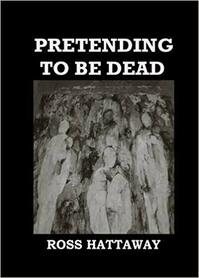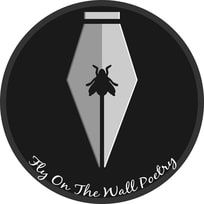 [In reviewing an archive of all the books I've reviewed, I found this, one of the very first ones written, which was on an old, now deleted, blog. I'm posting it here for posterity's sake, as Hattaway is an excellent poet, and I've thoroughly enjoyed all of his collections.] Ross Hattaway: Pretending To Be Dead Seven Towers, 2012, ISBN: 978-0-9571519-3-1 Ross Hattaway's second collection of poetry is a compelling and persuasive volume, dealing with the state of modern Ireland, human relationships, and the lamentable acts of war. Within such heady subjects, Hattaway mixes humour with pathos; careful not to mire the reader with misery, but to offer some comic relief. He is aware that life rarely contains singular visions, and the poems on display easily oscillate between wry cheekiness and reflective dirges. In the three-part poem 'Killing My Husband', the speaker moves from revengeful bloodlust to sorrowful loneliness. Hattaway is careful to be equally attentive to all sides; indeed, the very issue of poetry is imitated in 'The Recoil': Why do I record this half life I live? Because truth is an insistent bitch. Without light, they are only versions. Earlier on, the speaker states "Without truth, there is only witness". If a poet is considered to be a reporter on the world, then their words must be the carrier of truth and light. His 'Aisling' sequence reveals not so much Mother Ireland appealing to her brethren, but the children of Ireland having lost their way, penniless somehow and distracted from noble causes. The flippant answer offered up to all the nation's problems is to 'pretend to be dead'. Sometimes, truth is not always beautiful, and the ugly reality wins. In 'Did You', a sequence of questions and answers highlights the futility of conflict, and feels that "the ordinary reality of freedom" failed to be conveyed to the people before violence took over. In much the same way that the aforementioned wife chooses to kill her husband, Hattaway despairs over death being the only answer given to the problematic question of existence; a theme extended on in his 'Songs for the Battle of Normandy'. The poems themselves are mostly written in a clear, direct tone, usually with short meter to accentuate the punches. Hattaway is conversational and matter-of-fact, yet despite the bluntness, there is a tenderness to his speakers that hints at a greater wisdom than what the warmongers and politicians have to offer, a tenderness however often gained through hindsight. Elsewhere riffs on TVs chefs, single males as mating elephants and some self-aware tankas round off a collection that comes from conversing directly with life, full of honesty.
0 Comments
 Delighted to announce details of my next book, THE DOGS OF HUMANITY, from Fly on the Wall Poetry, out in August. Big thanks to editor Isabelle Kenyon for her belief and support with this! As suggested by the title, the poems are thematically linked by imagery, or direct allusion to, dogs and others animals. Canine imagery is used to explore themes of depression and weariness, how societal expectations can leave a person feeling (a runt, a mongrel, etc.). Issues of savagery and lack of humanity are also explored through this imagery. Elsewhere, animals are such as a motif to retreat into a pastoral idea, an escapism from mental health issues, finding an affinity with a nature that we must also sometimes contest.My aim, as with most of my writing, is to highlight what life is like living with a mental health issue, and to raise awareness and empathy with people who do so. At the same time, I am looking to share a lexicon of nature, both its light and dark side, so keenly developed by proponents such as Clare, Heaney and Hughes. The new issue of Dublin Review of Books is out, containing my review of Louis Mulcahy's The Potter's Book, available from Doire Press.
"The risk with any collection focusing heavily on one particular theme is in alienating the reader; if you aren’t familiar with the theme in hand, then why should you invest in the writing? The challenge is of course for the language to ascend beyond mere description and terminology, and to draw us in through the personal. This cannot simply be poetry by someone with an intimate knowledge of ceramics; we need to believe that only Mulcahy could have written this, that only he is at the centre of this work, cracking it open like terracotta under thermal expansion, to let us see the inner workings." This is my first review for DRB, honoured to be a small part of their fine work! Delighted to say I'm part of a new anthology, Switching Off Darkness: Young Irish Poets, to be released later this year by Vakxikon Publications.
The Anthologies of Young Poets series is a European poetry project launched by Vakxikon, a publishing house from Athens, Greece. Each anthology features poets not older than 40 years (so I only just qualified!), whose list of publications includes 1 to 3 books. All books in the series are bilingual (poems are printed in their original language alongside Greek translations). The authors commented on are: Annemarie Ní Churreáin, Dylan Brennan, Doireann Ní Ghríofa, Alice Kinsella, Stephen Sexton, Seán Hewitt, Rob Buchanan, Ingrid Casey, Elaine Feeney, Jess Traynor and myself. Many thanks to Ingrid Casey and Manuela Palacios-Gonzalez for their work in putting this together and considering my work. You can download the introduction to the anthology here: |
Blog Archives
April 2022
|
| COLIN DARDIS |
|
 RSS Feed
RSS Feed
